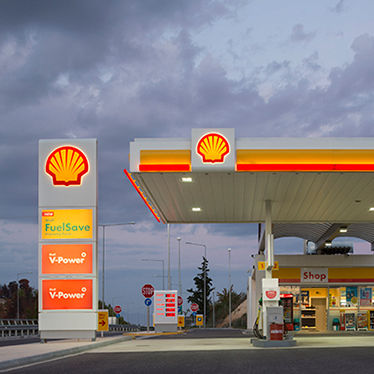

In the modern era of global business, where efficiency and environmental responsibility must go hand in hand, organizations are increasingly seeking tools that help them manage operations while staying true to their sustainability goals. For companies with transportation or delivery components, fleet management is a critical area where such balance can be achieved. Shell, a global energy leader, has introduced a practical solution to this need: the Shell Fleet Fuel Card. While it primarily simplifies fuel management and reporting, its implications for environmental sustainability are becoming increasingly significant. This blog explores how the Shell Fleet Fuel Card plays a role in promoting greener business operations.
Streamlining Fleet Operations with Precision
At its core, the Shell Fleet Fuel Card is a tool for managing fuel expenses, offering fleet managers greater control over their vehicles' operations. The card allows for detailed monitoring of fuel purchases, providing data such as the type of fuel purchased, the amount, and the location. This level of transparency can lead to better budgeting and operational decisions, but it also lays the groundwork for identifying wasteful practices that can have a direct impact on a company’s environmental footprint.
By tracking consumption patterns across a fleet, businesses can detect inefficiencies such as excessive idling, frequent short trips, or inconsistent fueling behaviors. Identifying and correcting these inefficiencies not only saves money but also reduces unnecessary emissions, reinforcing a business’s commitment to sustainability.
Supporting the Transition to Lower Emission Fuels
Shell has positioned its fuel card not just as a transactional tool, but as part of a broader strategy to promote the use of cleaner fuels. The Shell network offers access to a wide variety of fuel options, including lower-emission alternatives like Shell GTL Fuel (Gas-to-Liquid), Shell V-Power with DYNAFLEX Technology, and in some locations, biofuels or electric vehicle (EV) charging points.
With the Shell Fleet Fuel Card, companies are more easily able to incorporate these cleaner options into their operations. Businesses that aim to gradually transition to low-carbon or carbon-neutral fuels can use the card to plan and track their shift, setting benchmarks for improvement. Over time, this can lead to measurable reductions in a fleet's carbon footprint, contributing positively to a company’s environmental targets.
Enabling Carbon Reporting and Accountability
One of the most significant sustainability features of the Shell Fleet Fuel Card is its integration with reporting tools that help businesses understand their environmental impact. The card is often paired with fleet management platforms that provide detailed analytics, including CO₂ emissions per vehicle, route efficiency, and fuel type usage. These insights enable companies to make informed decisions and set actionable sustainability goals.
Furthermore, Shell offers carbon offsetting options tied to fuel card usage. For businesses looking to neutralize their fleet emissions, Shell’s carbon compensation program allows users to offset their CO₂ emissions through investments in global sustainability projects such as reforestation and renewable energy development. The ability to tie everyday operations to tangible environmental contributions gives businesses a transparent and credible path to climate accountability.
Facilitating the Future of Electric Fleets
As the transportation industry begins a slow but steady shift toward electric vehicles (EVs), tools like the Shell Fleet Fuel Card are evolving to meet emerging needs. Shell’s expanding network of EV charging stations across Europe and other parts of the world is being integrated into the fuel card ecosystem.
This means that fleet operators managing both traditional and electric vehicles can continue using a single card system to pay for and track energy usage, whether it’s diesel, petrol, or electricity. The seamless integration of electric mobility into fleet operations is a necessary step for companies that want to stay ahead of environmental regulations and meet corporate social responsibility targets.
Driving a Cultural Shift in Sustainability Thinking
Beyond the technical functionalities, the Shell Fleet Fuel Card also contributes to a broader cultural change within organizations. With greater visibility and control over vehicle use, fleet managers and drivers become more aware of how their daily activities affect the environment. Encouraging responsible fueling behaviors, maintaining vehicles regularly, and reducing fuel wastage become part of a shared commitment to sustainability.
This cultural shift is essential because technology alone cannot achieve environmental change. When tools like the Shell Fleet Fuel Card are used with the intention of driving green practices, they become catalysts for deeper behavioral change at all levels of the organization.